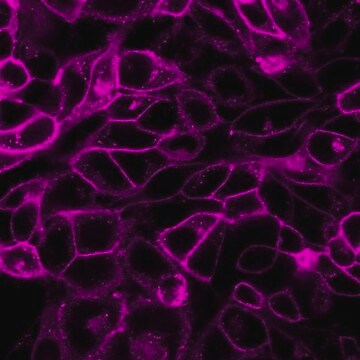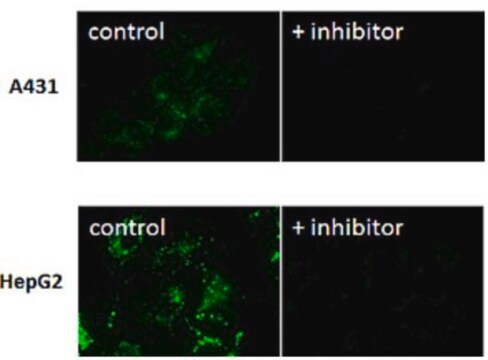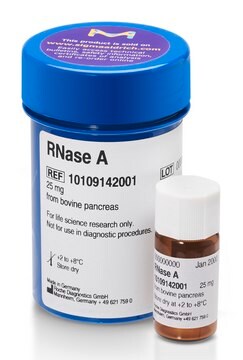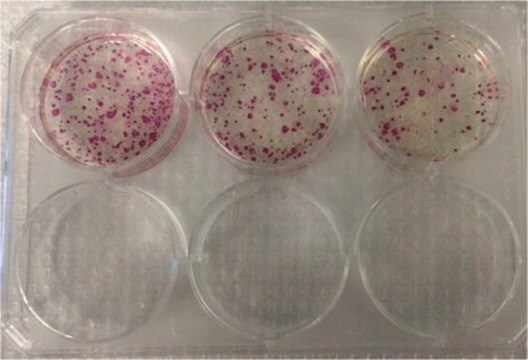SCT280
BioTracker™ Far Red Live Cell Cycle Assay Solution
Human
Synonym(s):
cell cycle dye, cell cycle indicator, cell cycle probe, live cell probe
About This Item
Recommended Products
product name
BioTracker™ Far Red Live Cell Cycle Assay Solution,
biological source
human
Quality Level
packaging
vial of 50 tests
manufacturer/tradename
Millipore
technique(s)
cell culture | stem cell: suitable
flow cytometry: suitable
shipped in
dry ice
storage temp.
−20°C
General description
Features and Benefits
Target description
Storage and Stability
Other Notes
Legal Information
Disclaimer
Signal Word
Danger
Hazard Statements
Precautionary Statements
Hazard Classifications
Aquatic Chronic 2 - Eye Dam. 1
Storage Class Code
10 - Combustible liquids
WGK
WGK 3
Regulatory Listings
Regulatory Listings are mainly provided for chemical products. Only limited information can be provided here for non-chemical products. No entry means none of the components are listed. It is the user’s obligation to ensure the safe and legal use of the product.
PRTR
Class I Designated Chemical Substances
ISHL Indicated Name
Substances Subject to be Indicated Names
ISHL Notified Names
Substances Subject to be Notified Names
JAN Code
SCT280:
Certificates of Analysis (COA)
Search for Certificates of Analysis (COA) by entering the products Lot/Batch Number. Lot and Batch Numbers can be found on a product’s label following the words ‘Lot’ or ‘Batch’.
Already Own This Product?
Find documentation for the products that you have recently purchased in the Document Library.
Our team of scientists has experience in all areas of research including Life Science, Material Science, Chemical Synthesis, Chromatography, Analytical and many others.
Contact Technical Service










